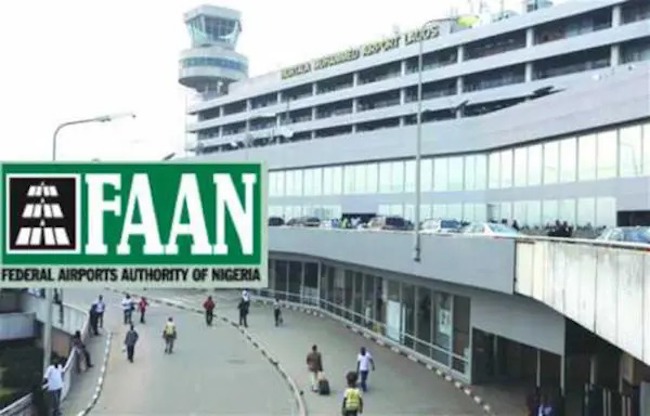The Federal Airports Authority of Nigeria (FAAN) is committed to elevating the Nigerian aviation industry to international standards, despite facing criticism from stakeholders and passengers regarding safety and operational issues. These concerns revolve around passenger harassment, extortion, and touting within Nigerian airports, particularly by security officers, airport officials, and ground handling staff. Incidents of unruly behavior, including a physical altercation between Customs officers and FAAN’s Aviation Security Director, have fueled doubts about Nigeria’s adherence to safety protocols, a cornerstone of any successful aviation industry. The clash stemmed from a disagreement over replacing a scanning machine, highlighting the ongoing tension between FAAN and Customs, with FAAN viewing manual searches as an avenue for extortion.
The issue of extortion extends beyond security personnel, with a ground handling company employee being dismissed for extorting a passenger. This incident, along with other reported cases, emphasizes the systemic nature of the problem and the need for a comprehensive solution. FAAN’s response has been to invest in multimillion-naira scanning machines to replace manual luggage checks at Customs checkpoints, aiming to eliminate extortion and unnecessary delays. These advanced machines can detect explosives and narcotics, providing a clearer image and improving threat identification. The plan is to dismantle the physical checking tables and implement a system where luggage is screened electronically, with physical checks conducted only when the machines detect suspicious items, under CCTV surveillance to prevent exploitation.
Further bolstering security measures, FAAN has initiated training programs for aviation security personnel, focusing on the Basic STP123 aviation security course. This move addresses concerns about security lapses, including an incident where an unauthorized individual gained access to an aircraft. Industry experts like former NCAA Director-General Harold Demuren have stressed the urgency of a modernized security framework, reflecting the proactive approach Nigeria adopted as early as 1992 in training specialized security officers. The overarching goal is to create a more secure aviation environment and prevent unlawful interference.
FAAN’s Managing Director, Olubunmi Kuku, has emphasized the agency’s commitment to equipping staff with the necessary skills and knowledge to meet global best practices. This includes enrolling staff in the Airport Management Professional Accreditation Programme (AMPAP), a comprehensive certification program designed to foster expertise in airport management. The program covers a wide range of topics, from landside services and passenger facilitation to aviation security and infrastructure planning, with a strong emphasis on integrating technology to enhance airport processes. FAAN recognizes the importance of investing in human capital alongside infrastructure development, aiming to build a world-class team capable of managing a growing aviation network.
This investment in human capital extends to “train-the-trainer” programs, particularly for fire and emergency staff. This proactive approach anticipates the increased personnel needs of new and upgraded airports, reflecting FAAN’s dedication to long-term operational excellence. Collaboration with institutions like the Nigerian College of Aviation Technology further strengthens these training initiatives. By focusing on both infrastructure and human resources, FAAN seeks to ensure that its operations are aligned with international standards.
In conclusion, FAAN is actively addressing the challenges facing the Nigerian aviation industry by investing in advanced technology, implementing robust security measures, and prioritizing staff training and development. The agency aims to create a more secure, efficient, and passenger-friendly environment while upholding global best practices. This multi-pronged approach, driven by leadership vision and a commitment to human resource innovation, seeks to transform the industry from within, ultimately positioning Nigerian aviation for growth and global competitiveness. The ultimate goal is to move past the current criticisms and build an aviation sector that is both safe and efficient, thereby boosting confidence among stakeholders and the international community.













